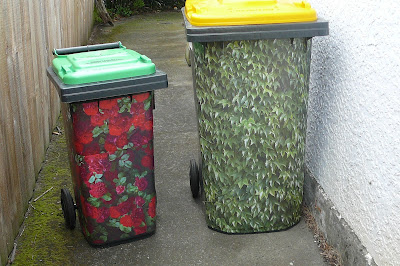IAG – Part 2 of bad at playing nicely, or just misunderstood?
The first part of this post (here) outlined aspects of IAG's bad performance in Australasia. Some questions arise: has IAG fallen short in other areas of activity, and what might be motivating its current behaviour? Could it be that IAG is a business under pressure from its own shortcomings, and squeezing Canterbury policy holders to make up for it?
IAG - UK
IAG purchased insurance interests in the UK: Equity Red Star (Britain's fifth largest motor insurer) and insurance brokers Barnett & Barnett, a provider of commercial insurance broking and risk management services.
The venture was not a particularly good one, and financial losses occurred. In addition Equity Red Star did not conduct itself well and had failings in the way it managed parts of it’s operations. As reported by the Financial Times on the 3rd of January this year:
Lloyd’s of London has censured a member syndicate for the first time in almost a decade after uncovering failings in the way it managed its financial reserves and claims payments.
The shortfall required Insurance Australia Group, the owners, and private investors, or “names”, to inject hundreds of millions of pounds into the business.
Lloyd’s said on Tuesday that after an inquiry with the Financial Services Authority, the motor insurer had admitted to two charges of “detrimental conduct”.
Not only did the company fall short of market requirements, the whole purchase may have been a bad idea from the outset.
IAG are now looking at selling their UK operation. As Fox Business saw it on the 16th of May:
Commonwealth Bank of Australia analyst Ross Curran said the sale was a "belated admission of their massive strategic mistake" of buying into the U.K. in the first place. IAG's U.K. operation has cost the insurer more than 500 million Australian dollars over the past two years, he said.
"Their U.K. business has been unprofitable for 28 out of the last 30 years," said Curran. "It's unlikely to ever make a profit in IAG's hands for the future. The only problem is there won't be any buyers for these assets."
If the UK operations are anything to go by, IAG aren't always very clever in how they expand their market presence.
IAG - Financial Issues
Equity Red Star was bought by IAG for an estimated A$1.8 billion, now has a book value of A$600m, and might end up being sold for A$400m (insuranceNEWS.com.au 21st May). [click link to continue]
At the operational level Equity Red Star lost A$121m for the second half of 2010 and A$5m for the second half of 2011 (no figures for the first half of 2011). I don't know enough about the insurance industry to attempt to put a figure on IAG's likely operational loss from the whole exercise, but it will be a big number (up to or more than the A$1 billion reported in the Sydney Morning Herald on May 21st?).
Add earthquake costs to those of the failed U.K. operation, plus floods in Australia and Thailand, and it would seem IAG is a business faced with a major financial challenge.
While this is going on IAG is, according to the Sydney Morning Herald on the 21st of May, growing it’s business in Asia:
Right now, you can buy high-quality overseas insurers such as Chubb, Aflac, Berkshire Hathaway and Fairfax Financial Holdings on price-to-book multiples of around one.
IAG is paying three to five times this multiple for its Asian acquisitions. It looks very much like growth at any cost.
The combination of operating and capital losses in the UK, earthquake and flood claims, and expensive growth ambitions in Asia (Malaysia, Thailand, Vietnam, China, and India), must surely be a huge incentive for IAG to take every opportunity to cut earthquake claim costs in Canterbury.
Minister Brownlee
Going back to the Financial Times article of the 3rd of January, there is the following :
Lloyd’s said: “Equity accepts that it did not ensure that ... the reserve review process and the results of each reserve review were properly overseen, documented, reported and audited.”
Deloitte, the group’s reporting actuaries, was given “incomplete and inaccurate information about the reserve reviews” in 2009, it added.
Isn’t this an echo of part of the report of the Queensland Floods Commission of Enquiry?
Perhaps the combination of bad corporate culture and a financial squeeze is behind the treatment being experienced by IAG claimants in Christchurch. Anything to reduce costs?
Maybe Minister Brownlee can reassure us that none of this is so, and that decent service will be provided shortly? Can he, however, be confident about anything IAG tell him?
The following links have been sources for the above, and provide more background and in-depth information.
Financial Times, 3 Jan 2012: Lloyd’s censures motor insurer (note: access requires a subscription, which is available free)
The Telegraph (UK), 6 Mar 2012: KPMG facing probe over Equity Red Star audit
Fox Business, 16 May 2012: Insurance Australia Considers Selling UK Operations
Reuters Sydney, 16 May 2012: Australia's IAG reviewing British insurance business
Financial Times, 17 May 2012: Insurance Australia considers UK assets sale
Insurance Times, 18 May 2012: IAG faces £200m loss on Equity Red Star sale
insuranceNEWS.com.au, 21 May 2012: IAG hangs out ‘for sale’ sign on UK business
The Sydney Morning Herald, 21 May 2012: The case for selling IAG
.
